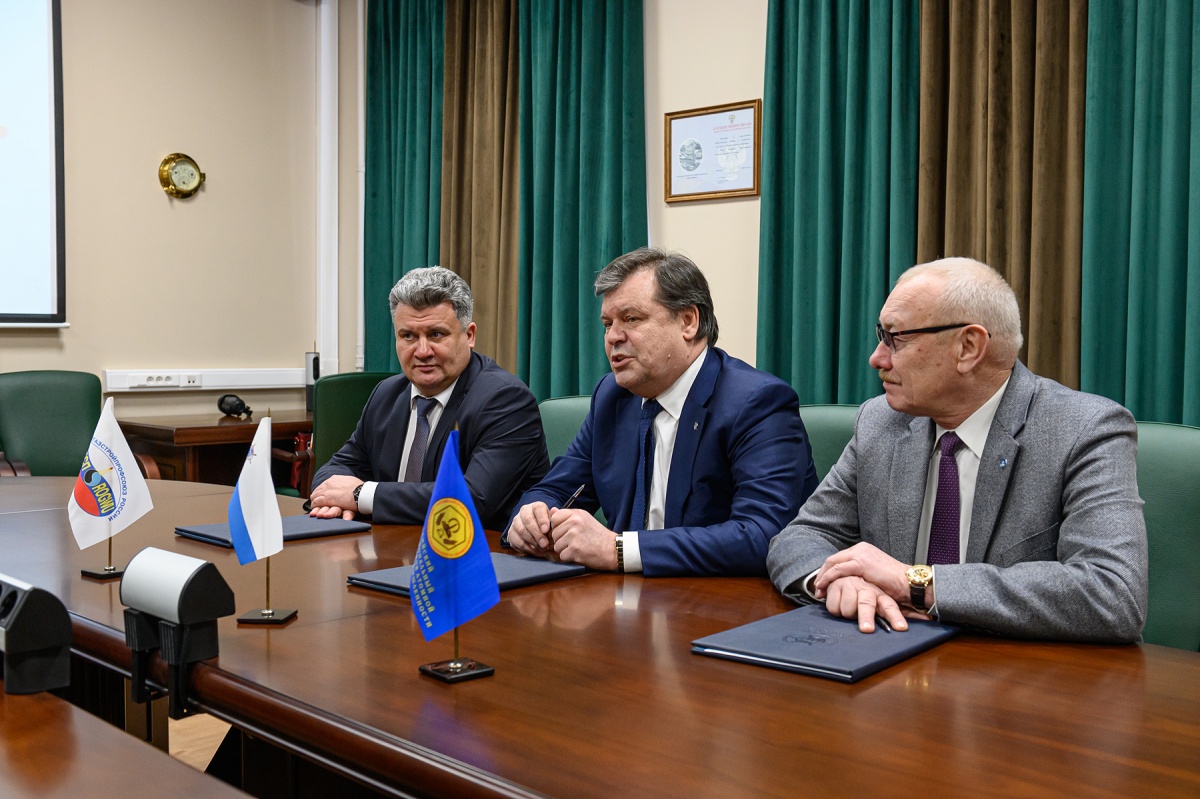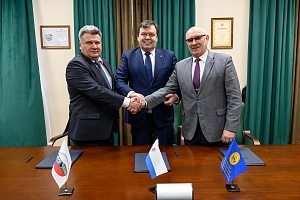
The Far North and the Arctic are in the area of special attention of the Trade Unions
On March 10, 2021, a Cooperation Agreement was signed between the ROGWU, the Russian Trade Union of Seafarers and the Russian Trade Union of Nuclear Power and Industry Workers.Within the framework of the Agreement, the parties agreed to jointly protect the interests and rights of members of sectoral trade unions and take into account common interests when interacting with federal authorities. One of the main tasks of the representatives of the three friendly trade unions, undoubtedly, will be to assist in the implementation of the Development Strategy of the Arctic Zone of the Russian Federation and the state program ‘Social and Economic Development of the Arctic Zone of the Russian Federation’. The Agreement also contains an agreement on striving to preserve labour potential in the Arctic zone, to attract highly qualified specialists and youth, including through the formation of additional economic and social incentives.
Aleksandr Korchagin, the ROGWU President, emphasized that ‘We, as a Trade Union, have repeatedly stated that the current system of state guarantees and compensations has practically exhausted itself. We do not see any factors in attracting workers to the North. Therefore, the importance of the Strategy for the Development of the Arctic Zone of the Russian Federation can hardly be overestimated, because it involves the modernization of medical and social infrastructure, the solution of environmental problems, the preservation of the culture of small northern peoples, the development of the infrastructure of route and shift camps in the Arctic. Thus, conditions are created for a comfortable life and work in the northern territories, as well as conditions for attracting qualified personnel.’
‘Our main task today is to protect the national maritime labour market, preserve and increase jobs for Russian seafarers engaged in the exploration, production and transportation of hydrocarbons in the Arctic,’ said Yuri Sukhorukov, Chairman of the Russian Trade Union of Seafarers. - Currently, the situation is such that more and more foreign ships with foreign crews on board receive permission to work in cabotage and are involved in the process of transportation along the Northern Sea Route, which, from our point of view, is completely unacceptable. This contradicts the adopted strategy for the development of the Northern Sea Route (NSR), according to which the transportation of produced hydrocarbons should be carried out on ships of Russian owners, built in our country, with Russian crews on board. I am sure that the cooperation of the three largest national trade unions within the framework of the implementation of the state program for the development of the Arctic zone and the Northern Sea Route will make it possible to turn the tide: we will work to ensure that only Russian sailors work in this strategically important economic zone.’
‘Rosatom is the infrastructure operator of the Northern Sea Route. Oil products, liquefied natural gas, coal and metals are transported through the ice transport artery, which is provided by the icebreakers of Rosatomflot. Behind all the successes of our industries are people - nuclear scientists, sailors, oil workers, gas workers, builders. Each of us is well aware of the specifics of his industry, and the time has come to unite this knowledge, together to protect the rights and interests of workers not only at the industry level, but also at the inter-sectoral, regional levels. The time has come in negotiations with ministries, the Government of the Russian Federation, legislative bodies of various levels to achieve increased guarantees for those who work in difficult climatic and social conditions,’ said Igor Fomichyov, Chairman of the Russian Trade Union of Nuclear Power and Industry Workers.
The cooperation between the three largest trade unions, which is starting today, uniting more than 1.5 million workers, creates a powerful platform for consolidating the trade union movement in protecting the socio-economic interests of workers in the North, and will make it possible to take a new step towards the implementation of the social part of the program for the development of the Arctic zone of the Russian Federation.



